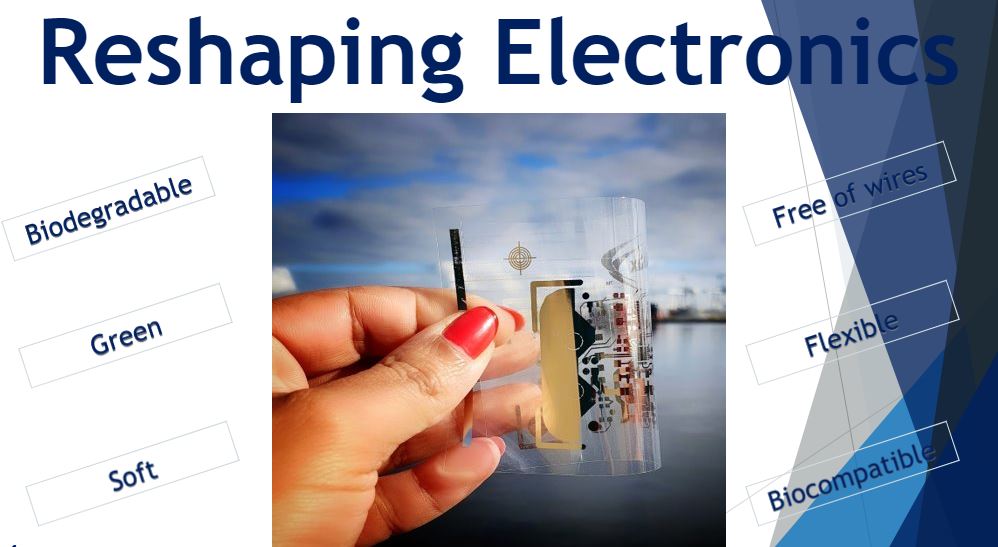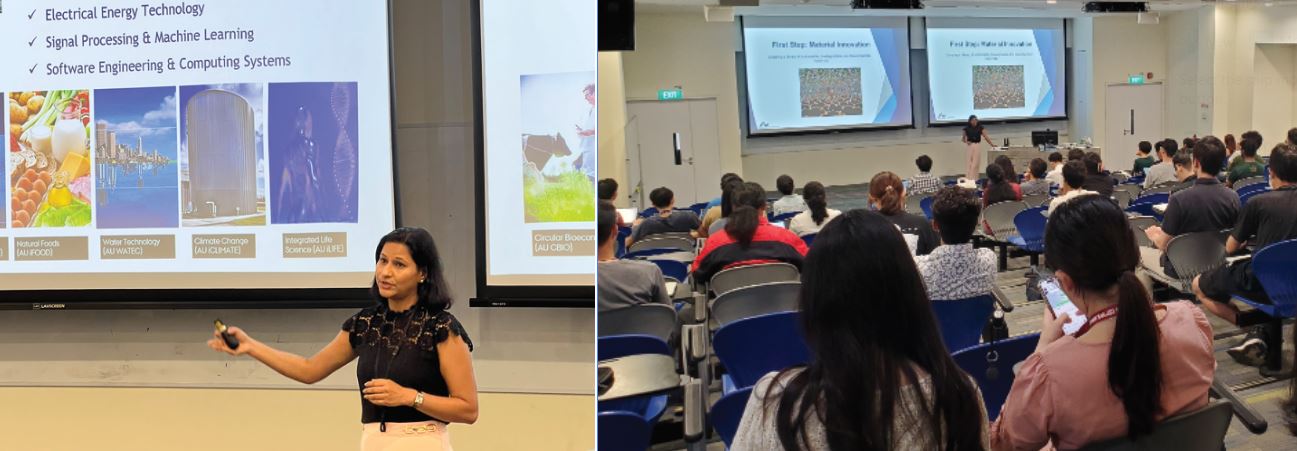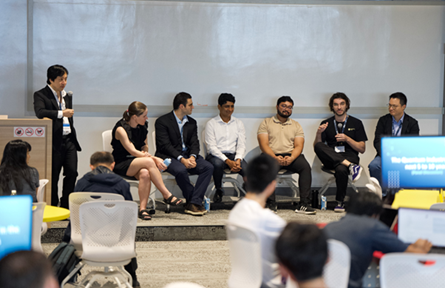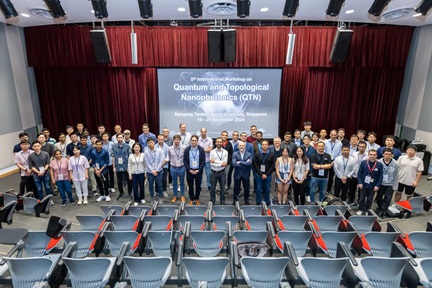Making Electronics Sustainable: Solving the Dichotomy by Assoc Prof Shweta Agarwala
IAS STEM Graduate Colloquium Jointly Organised with the Graduate Students' Clubs
Held on 12 October 2023 at LT8 NTU North Spine, the STEM Graduate Colloquium by Assoc Prof Shweta Agarwala was jointly organised by IAS NTU and the Graduate Students' Clubs of MAE, MSE, and LKCMedicine.
Assoc Prof Agarwala is the Head of Printed Electronics Technology laboratory at the Department of Electrical and Computer Engineering, Aarhus University, Denmark. She serves as the chair of IEEE Women in Engineering Denmark sector, and is an advocate in engaging more females in STEM.

Her research vision is to build sustainable electronics through soft and biodegradable electronics materials, which was covered in the seminar. Together with the efforts of her research group, they are working on building a biodegradable material library with novel electronic functionalities and using 3D printing to create flexible devices with applications in healthcare, wearables, smart textiles, and soft robotics.
She highlighted how sustainability is one of the top global challenges, as recognised by United Nations, and electronics is the pillar that supports current and future solutions in every sector, especially in healthcare. However, current electronic industry has one of the largest carbon-footprints, as it uses materials that are non-biodegradable and their improper end-of-life treatment releases toxins into our environment. Thus, her research aims to overcome these problems and developed novel biodegradable, biocompatible, and bioresorbable electronics materials. From the many case studies discussed, she showed that printed electronics are indeed the next emerging fabrication technique that allows electronic components, circuits, and devices to be deposited onto the desired surface using novel inks and new shape forming factors, leading to flexible components and wires that look different from the traditional ones.

Assoc Prof Shweta Agarwala sharing her group's research work on sustainable electronics with the audience.
Following the presentation, she addressed questions from the audience such as the current waste treatment of electronics waste and what changes should be made in order to truly achieve sustainable electronics. Over the light refreshments, some students also consulted her about printing of electronics using different materials.

Enthusiastic students chatting with Assoc Prof Shweta Agarwala post-event.
“It was a refreshing experience to hear about how
biodegradable and organic materials can be printed into electronics to achieve sustainability.” - Kumar Sourabh (PhD student, MAE)
“The colloquium demonstrates the importance of planning for the future of electronics, by creating more sustainable electronics for current or future applications and proper disposal of electronics after their end of product life.” - Choong Li Yan Anthony (PhD student, MSE)
Written by Slocha Sapasakulvanit (MAE GSC)














/enri-thumbnails/careeropportunities1f0caf1c-a12d-479c-be7c-3c04e085c617.tmb-mega-menu.jpg?Culture=en&sfvrsn=d7261e3b_1)

/cradle-thumbnails/research-capabilities1516d0ba63aa44f0b4ee77a8c05263b2.tmb-mega-menu.jpg?Culture=en&sfvrsn=1bc94f8_1)






